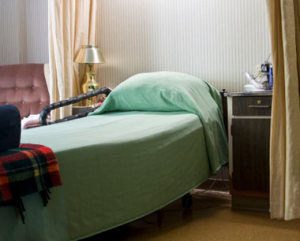Many of us know that the state of California has been under intense scrutiny for the way it has handled nursing home abuse and neglect violations. In addition to concerns about the frequency with which the California Department of Public Health has investigated a number of complaints, victim advocates also contend that facilities across the state aren’t fined enough to prevent future elder abuse violations.
According to a recent news release from the California Advocates for Nursing Home Reform (CANHR), the Department of Public Health has cited a couple of facilities in southern California for serious violations. And, according to the report, each of the facilities received a $75,000 fine—an amount that suggests that the state is heading in the right direction.
 California Nursing Home Abuse Lawyer Blog
California Nursing Home Abuse Lawyer Blog




 First, it’s important to have a clear idea about why hospices are bringing in relatively healthy older adults, and how these companies are profiting from non-terminal patients. How did this start to happen? In short, many hospice care centers have begun recruiting patients with aggressive marketing tactics, and many of those patients aren’t terminal. It’s in the financial interest of a hospice chain to “find patients well before death,” the Washington Post reported. And the reason is simple: “Medicare pays a hospice about $150 a day per patient for routine care, regardless of whether the company sends a nurse or any other worker out that day. That means healthier patients, who generally need less help and live longer, yield more profits.”
First, it’s important to have a clear idea about why hospices are bringing in relatively healthy older adults, and how these companies are profiting from non-terminal patients. How did this start to happen? In short, many hospice care centers have begun recruiting patients with aggressive marketing tactics, and many of those patients aren’t terminal. It’s in the financial interest of a hospice chain to “find patients well before death,” the Washington Post reported. And the reason is simple: “Medicare pays a hospice about $150 a day per patient for routine care, regardless of whether the company sends a nurse or any other worker out that day. That means healthier patients, who generally need less help and live longer, yield more profits.”
 When we think about transitioning an elderly loved one into a nursing home or an assisted-living facility, we expect that the facility will provide care and won’t engage in acts of nursing home abuse or neglect. However,
When we think about transitioning an elderly loved one into a nursing home or an assisted-living facility, we expect that the facility will provide care and won’t engage in acts of nursing home abuse or neglect. However,  It’s no secret that
It’s no secret that 







